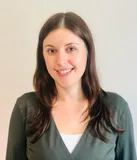Meet the team

Professor of Behavioural Science, Warwick Business School Professor
Nick Chater works on the cognitive and behavioural sciences, especially reasoning, decision making and language. He applies his experimental, computational and mathematical studies to public policy and the private sector. He has published more than 250 papers, and has won four national awards for psychological research. He has served as Associate Editor for the journals Cognitive Science, Psychological Review and Psychological Science, was elected a Fellow of the Cognitive Science Society in 2010 and a Fellow of the British Academy in 2012. He is also on the advisory board of the Cabinet's Office's Behavioural Insight Team (BIT), popularly known as the 'Nudge Unit'.

Joint appointment, Life Sciences and Maths Institute
Matt's research focuses on the three E's: Epidemiology, Evolution and Ecology. He is particularly interested in how spatial structure, heterogeneities and stochasticity affect the emergent population-level dynamics; as such his work uses a wide range of modelling tools and concepts. While large-scale simulations play a substantial role in Matt's work, he's also very keen to develop simple modelling techniques that can capture the important dynamics of a system. More recently he's become increasingly involved in science advice for policy and how this can be best achieved. Matt's interests include: Optimal control of infection, cost-effective vaccination, policy-relevant prediction, vector-host dynamics, within-host immunological dynamics, disease evolution in response to control, climate and population change. He has worked on a number of infections including: Avian influenza; Bovine tuberculosis in livestock; Bubonic plague; Childhood infections (including Measles and Whooping Cough); COVID-19; Foot-and-mouth disease; (seasonal and pandemic) Influenza; and a range of Neglected Tropical Diseases. Matt has been a member of JCVI (Joint Committee on Vaccination and Immunisation) and SPI-M (the Scientific Pandemic Influenza Modelling group) since 2008.

Joint appointment, Life Sciences and Maths Institute
Mike is a Professor in the Zeeman Institute for Systems Biology and Infectious Disease Epidemiology Research at the University of Warwick. His research focuses upon the development of models of infectious diseases and their utility as predictive tools. He has a particular interest in the predictive power of models in the early stages of disease outbreaks, when there is significant uncertainty regarding the spread of disease. Professor Tildesley has strong links with policy makers, working closely with the Department for the Environment, Food and Rural Affairs, the US Department of Agriculture (USDA), the World Organisation for Animal Health (OIE) and the Food and Agriculture Organisation (FAO) upon strategies for disease control. Professor Tildesley is currently a member of the Scientific Pandemic Influenza Modelling group (SPI-M), the modelling subgroup of SAGE, and has been working throughout the COVID-19 pandemic upon the development of models to inform a range of policy questions in the UK.

Associate Professor Nicole Robb
Associate Professor, Warwick Medical School
Nicole is an Assistant Professor at the University of Warwick Medical School, a visiting lecturer at the University of Oxford and a Royal Society Dorothy Hodgkin Fellow. She has a 15-year track record of studying viruses and published the first single-molecule studies on influenza virus replication. Her research interests include super resolution imaging, using biophysics techniques for rapid pathogen detection and the application of machine learning algorithms for image analysis. She holds several patents on viral diagnostic technology and is the co-founder of a spinout company from the University of Oxford that is working to commercialise a 1-minute COVID-19 diagnostic test that was developed in her academic group.

Professor in Behaviour Science, Warwick Business School
Neil is Professor of Behavioural Science at Warwick Business School. Neil has been using mass transaction data to understand how people's behaviour and financial situation has changed during the COVID-19 pandemic. Check out "Might coronavirus bring a lasting shift to online spending?" and "How uneven is the recovery in consumer spending across UK regions?

